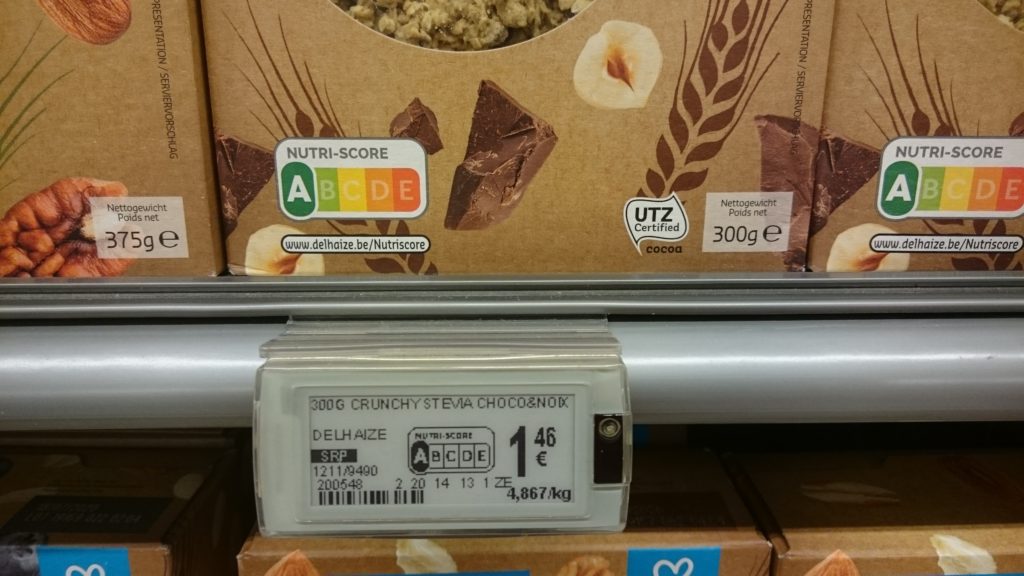Eating foods with a poor nutritional quality assessed by the score underlying the Nutri-Score is associated with higher mortality from all causes and specifically from cancer and diseases of the heart, lungs and digestive system, finds a study published by The BMJ today.
The findings, fruit of an international collaboration with the participation of Antonio Agudo, head of the Nutrition and Cancer group of the Bellvitge Biomedical Research Institute (IDIBELL) and the Catalan Institute of Oncology (IC=), support the use of the Nutri-Score front-of-pack label to guide people towards healthier food choices and could inform ongoing discussions about making food labelling systems uniform across the European Union.
A nutritional traffic light
Nutri-Score is a simple front-of-pack nutritional label that scores foods according to their nutritional quality. Each product receives a letter and a color code, from dark green (A) indicating higher nutritional quality, to dark orange (E), indicating lower nutritional quality.
Nutri-Score is based on the UK Food Standards Agency nutrient profiling system (FSAm-NPS), which grades the nutritional quality of food products based on their content in energy, saturated fats, sugar, sodium, protein, fibers and fruits and vegetables, but more evidence was needed before it can be widely implemented.
So, an international research team set out to determine if the Food Standards Agency nutrient profiling system (FSAm-NPS) is associated with mortality.
A very large longitudinal study
Their findings are based on more than half a million adults from 10 European countries who were taking part in the European Prospective Investigation into Cancer and Nutrition (EPIC) study.
Questionnaires were used to assess their usual dietary intakes and a FSAm-NPS index was calculated for each individual based on the nutritional quality of food consumed.
“Index scores were lower, indicating diets of overall higher nutritional quality in Spain, Greece, Norway, and Italy, and higher in the UK, Sweden, the Netherlands, Denmark, Germany, and France,” explains Agudo.
Participants were tracked for an average of 17 years, during which time the researchers found that those with a higher dietary index score showed an increased risk of all-cause mortality as well as mortality from cancer, and diseases of the circulatory, respiratory, and digestive systems.
In absolute terms, rates for all-cause mortality per 10,000 persons over 10 years were 1,237 in men and 563 in women in the highest fifth of the dietary index score (lower nutritional quality) compared with 1,008 in men and 518 in women in the lowest fifth.
“This is an observational study, so can’t establish a direct causal relation between a worse punctuation and mortality,” clarifies Agudo. But concludes: “However, strengths include the large number and long follow-up of participants from different European countries with diverse backgrounds and dietary patterns.”

